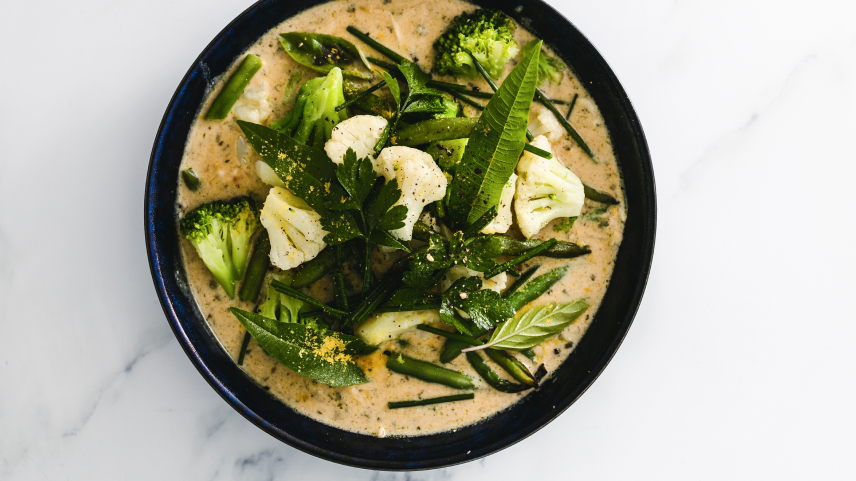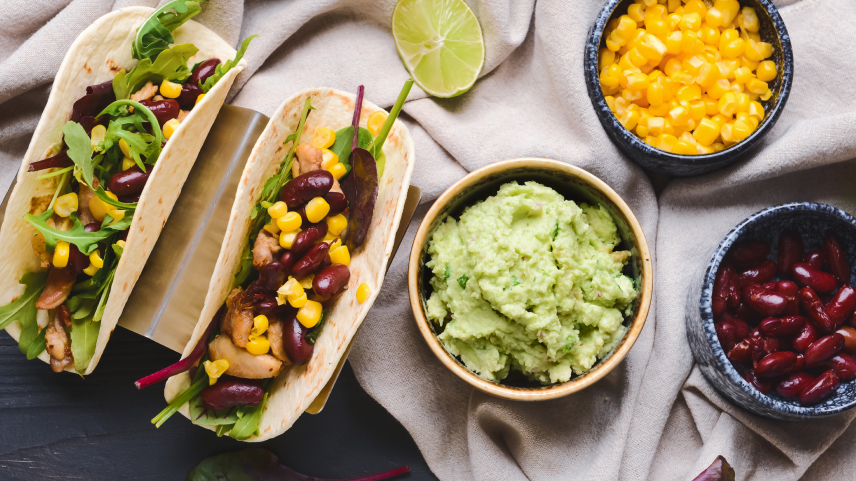Discovering Diets - Veganism and Vegetarianism

Have you ever been curious about the various types of diets that people seem to follow? With so many options and so many different rules, you might wonder whether one diet is better suited to your needs than another. In theDiscovering Diets series, we're taking apart popular diets and looking at their benefits and basics.
You may have noticed more and more people turning to plant-based diets, whether that's simply doingMeat Free Mondaysor going full vegan. If you think quitting eating meat is a hip new trend, it's not the case - it's been around since approximately 3200 BC
1! So, what makes up a vegan or vegetarian diet, and is it good for you?
The Basics of the Meat-Free Diet
A vegetarian or vegan diet focuses on plant-based foods—grains, legumes, fruits, and vegetables. Vegetarians may also consume eggs and dairy, depending on personal choice. If you're considering or following a meat-free lifestyle, here are a few important points to keep in mind2:
- Planning is key. To ensure a balanced intake of nutrients, proper diet planning is essential. Make sure you’re covering all macronutrient needs, especially if you're active or transitioning to a new eating style.
- Prioritize protein. A common concern on a plant-based diet is protein intake. Pulses, legumes, tofu, and meat alternatives can be great sources. Protein powders can help close nutritional gaps. Vegan protein powders with blended sources are ideal, as they offer a complete amino acid profile. It’s also recommended to consume slightly more protein than standard guidelines suggest (e.g., over 0.45 g per pound of body weight for women), since some plant sources lack certain essential amino acids.
- Adaptable to different lifestyles. A meat-free diet can be successfully followed by athletes, teens, and families alike. As long as nutritional needs are met, it can be a long-term and sustainable choice. It’s wise to consult with a healthcare provider before or during dietary transitions.
Micronutrient intake should remain a priority. Vegetarian and vegan diets may lack certain nutrients like vitamin B12, iron, calcium, omega-3s, and zinc3.

Supplements can help bridge these nutritional gaps, especially for beginners adjusting to a new routine:
- Iron – For energy support and circulatory health, try Maxler Iron 25 mg. It provides a highly bioavailable and gentle-on-stomach form of iron.
- B-Group Vitamins – Support metabolism and mood with Maxler B-Complex, ideal for maintaining daily vitality.
- Protein & Recovery – For meat-free athletes, muscle recovery is key. Maxler 100% Golden BCAA provides high-quality amino acids to support post-workout repair and lean mass gains.
Vegan vs Vegetarian
What’s the difference between vegetarianism and veganism? While both prioritize plant-based foods, vegetarianism is typically more flexible. Some vegetarians may consume dairy, eggs, or even meat or fish occasionally4.
Veganism, on the other hand, follows a stricter approach. Vegans avoid all animal products and often extend these choices to lifestyle habits as well, such as avoiding leather, wool, or animal-tested products5. For environmentally conscious individuals, veganism is a powerful choice—studies show it significantly reduces carbon footprint6.
The Health Benefits
Healthy heart and body. Plant-based diets are linked to reduced risk of heart disease, lower LDL (“bad”) cholesterol, and improved blood sugar control. They also reduce the risk of developing diabetes7. Their anti-inflammatory properties support healthy aging and brain health8.
Diverse nutrients. These diets are rich in fiber and essential vitamins, such as C, E, A, and B9. They also provide important minerals and phytonutrients—plant-derived compounds known for their antioxidant and anti-inflammatory effects910.
Maintaining a healthy weight. Plant-based diets have been shown to help with weight management and lowering BMI, both of which can reduce the risk of metabolic conditions1112.
Less processed food. These diets typically emphasize whole, fresh foods, helping to reduce your intake of saturated fats and excess sodium13.
Better gut health. The high fiber content in plant foods supports a diverse gut microbiome, improves digestion, and enhances appetite control14. Additionally, these diets foster the production of short-chain fatty acids by gut microbes—key compounds that support immune and metabolic health15.
If you’re thinking about giving this lifestyle a try, here’s a glimpse of what your day might look like:

FOR VEGETARIANS
- Greek yoghurt without added sugars alongside some muesli and fruit
- Hummus and vegetables
- Mushroom soup with barley
- Celery and cheese
- Green curry with tofu, rice and broccoli
- Morning
- Snack
- Lunch
- Snack 2
- Dinner

FOR VEGANS
- A green smoothie with vegan protein powder
- Apples and peanut butter
- Pasta with tomato sauce, basil and a mixed salad
- Popcorn
- Tofu and black bean tacos with guacamole
- Morning
- Snack
- Lunch
- Snack 2
- Dinner




